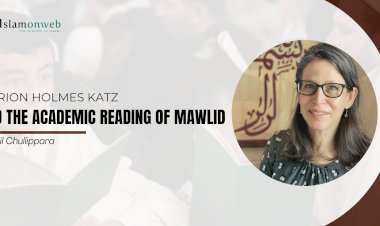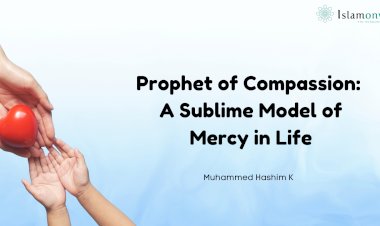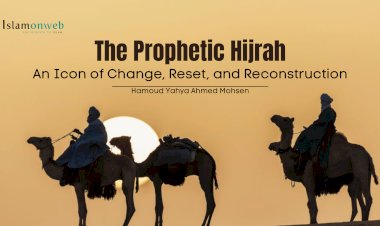Abu Jahl and Abu Lahab: A Comparative Study of Two Notorious Enemies of Islam
In the early days of Islam, when the Prophet Muhammad ﷺ began preaching the message of monotheism in Mecca, he faced fierce opposition from the elite of the Quraysh tribe. Among his most relentless adversaries were two key figures: Abu Jahl (Amr ibn Hisham) and Abu Lahab (Abd al-Uzza ibn Abdul Muttalib). Both men played significant roles in attempting to hinder the growth of Islam, but they did so from different perspectives and motives. This article seeks to explore their backgrounds, motivations, methods of opposition, and the legacy they left behind while offering a comparative analysis of these two prominent figures in Islamic history.
Background and Lineage
Abu Jahl (Amr ibn Hisham)
Abu Jahl, whose real name was Amr ibn Hisham, belonged to the Banu Makhzum, one of the most powerful and respected clans of the Quraysh tribe. The Banu Makhzum were known for their wealth, power, and influence in Meccan society. Abu Jahl was considered an intelligent and astute man, earning him the title Abu al-Hakam (Father of Wisdom) by his peers. However, due to his intense opposition to Islam, he was later given the derogatory title of Abu Jahl (Father of Ignorance) by the Muslim community.
Abu Lahab (Abd al-Uzza ibn Abdul Muttalib)
Abu Lahab, whose real name was Abd al-Uzza ibn Abdul Muttalib, was an uncle of the Prophet Muhammad ﷺ , making his opposition to Islam particularly painful for the Prophet. Abu Lahab belonged to the Banu Hashim clan, the same clan as the Prophet. His nickname, Abu Lahab (Father of Flames), referred to his fiery temperament and possibly his ruddy complexion. Unlike Abu Jahl, who earned his title through public perception, Abu Lahab's name became more symbolic after the revelation of Surah Al-Masad (The Palm Fiber), which condemned him to eternal punishment in Hellfire.
Motivations for Opposing Islam
Abu Jahl
Abu Jahl's opposition to Islam was driven primarily by his concern for the social and political power of the Quraysh tribe. As a leader of the Quraysh, Abu Jahl feared that the monotheistic message of Islam would undermine the existing social order, which was deeply rooted in idol worship and tribal loyalty. He viewed Islam as a direct threat to the power and influence of the Meccan elite, especially since the new faith promoted equality among believers, challenging the existing hierarchy.
Abu Jahl was also motivated by a personal vendetta against the Prophet Muhammad ﷺ . He resented the idea of a man from the Banu Hashim (the Prophet's clan) becoming a leader and Prophet, as it challenged the supremacy of the Banu Makhzum, Abu Jahl's clan. His opposition was deeply rooted in tribal rivalry, which added to his already intense hostility.
Abu Lahab
Unlike Abu Jahl, Abu Lahab's opposition to Islam was more personal and familial. Being the Prophet's uncle, he had a close relationship with Muhammad ﷺ before the advent of Islam. However, Abu Lahab was offended by the Prophet's claim to prophethood and the call to abandon the idols that had been worshipped by their ancestors for generations. For Abu Lahab, the message of Islam not only challenged his religious beliefs but also threatened his family's honour and reputation.
Additionally, Abu Lahab was concerned about the potential loss of economic benefits from the annual pilgrimage to the Kaaba. As custodians of the Kaaba, the Quraysh profited from the trade and idol worship associated with the pilgrimage. Islam's monotheistic message, which condemned idol worship, posed a financial threat to the Quraysh's lucrative pilgrimage industry. Like many others, Abu Lahab feared the economic consequences of Islam's rise.
Methods of Opposition
Abu Jahl's Aggression
Abu Jahl's opposition to Islam was characterized by extreme cruelty and violence. He was known for his physical and psychological persecution of early Muslims. One of the most notorious incidents involved his mistreatment of Sumayyah bint Khayyat, one of the first female martyrs in Islam. Abu Jahl tortured Sumayyah and her family, including her husband Yasir and son Ammar, in an attempt to force them to renounce their faith. Sumayyah's refusal led to her brutal execution at the hands of Abu Jahl, making her the first martyr in Islam【Ibn Hisham, 2015】.
Abu Jahl also organized public boycotts against the Prophet and his followers, isolating the Muslim community in Shib Abi Talib for three years. During this period, the Muslims were cut off from food supplies and social contact, leading to extreme hardship. Abu Jahl's cruelty knew no bounds, and he made several attempts to physically harm the Prophet Muhammad ﷺ . In one instance, he planned to kill the Prophet by crushing his head with a rock while he was praying near the Kaaba. However, divine intervention thwarted his plot【Al-Bukhari, Sahih Al-Bukhari, 3675】.
Abu Lahab's Hostility
Abu Lahab's opposition to Islam was less violent but equally relentless. He publicly ridiculed the Prophet and went out of his way to humiliate him. One of the earliest incidents occurred after the Prophet Muhammad ﷺ received the first revelation. When the Prophet gathered the Quraysh on Mount Safa to announce his prophethood, Abu Lahab was the first to openly reject him, shouting, "May you perish! Is this why you gathered us?" His words became infamous, as they were later echoed in Surah Al-Masad, which begins with the verse: "Perish the hands of Abu Lahab, and perish he!" (Qur'an 111:1)【Ibn Kathir, 2016】.
Abu Lahab also encouraged others to boycott the Prophet's message, and he actively tried to discredit him. He and his wife, Umm Jamil, spread false rumours and accusations about the Prophet in an effort to tarnish his reputation. Umm Jamil would even throw thorns and filth in the Prophet's path to harass him. Abu Lahab's enmity was so intense that even after the deaths of two of his sons, who were married to the Prophet's daughters (Ruqayyah and Umm Kulthum), he continued to express hostility, rejoicing in the Prophet's grief.
Key Historical Incidents Involving Abu Jahl and Abu Lahab
- The Battle of Badr
One of the most significant moments in Islamic history that involved Abu Jahl was the Battle of Badr in 624 CE. This battle marked the first major military confrontation between the Muslims and the Quraysh. Abu Jahl played a key role in leading the Quraysh army into battle. He was confident that the Quraysh would easily defeat the Muslims, given their superior numbers and resources.
However, the battle ended in a decisive victory for the Muslims, despite being outnumbered. Abu Jahl was killed during the battle by two young Ansari warriors, Mu'adh ibn Amr and Mu'awwidh ibn Afra, who sought him out specifically because of his notorious opposition to the Prophet ﷺ 【Ibn Hisham, 2015】. His death marked the end of one of the most feared enemies of Islam.
- Abu Lahab's Death
Unlike Abu Jahl, who met his end on the battlefield, Abu Lahab's death came soon after the Battle of Badr. Although he did not participate in the battle, his disappointment and rage at the Quraysh's defeat were palpable. Abu Lahab's demise was less heroic; he died of a severe illness, some sources suggesting a skin disease, just a few days after Badr. His death was seen as a divine punishment for his cruelty and enmity towards the Prophet. According to some narrations, no one dared touch his body due to the foulness of the disease, and his corpse was left in disgrace【Ibn Kathir, 2016】.
Legacy and Conclusion
Both Abu Jahl and Abu Lahab are remembered as symbols of ignorance, arrogance, and relentless opposition to Islam. Abu Jahl, with his intelligence and political acumen, could have been a great leader, but his pride and hatred for the Prophet's message of equality and monotheism blinded him to the truth. His violent persecution of early Muslims and his role in the Quraysh's campaigns against Islam earned him the title Pharaoh of this Ummah, a title given by the Prophet Muhammad ﷺ himself【Al-Bukhari, Sahih Al-Bukhari, 3675】.
Abu Lahab, despite being a close relative of the Prophet ﷺ , allowed his personal pride and familial loyalty to idolatry to lead him astray. His punishment, as described in Surah Al-Masad, serves as a stark reminder of the consequences of rejecting the truth, particularly for those who are in positions of power and influence.
In conclusion, while both Abu Jahl and Abu Lahab shared a common goal of opposing Islam, their motivations and methods varied. Abu Jahl was driven by political and tribal considerations, while Abu Lahab's opposition stemmed from personal and familial pride. Together, they represent the archetype of resistance to divine truth, and their fates serve as lessons in the dangers of arrogance and ignorance.
About the author:
Mohammed Shebeen T. Shabu is an accomplished academic with a Master’s degree in International Finance (M.Com), having qualified for the NET-JRF. He is currently pursuing a Ph.D. in Commerce at the University of Madras.
Disclaimer
The views expressed in this article are the author’s own and do not necessarily mirror Islamonweb’s editorial stance.

























Leave A Comment